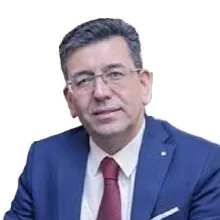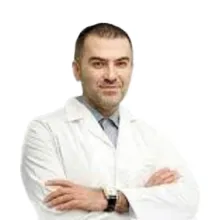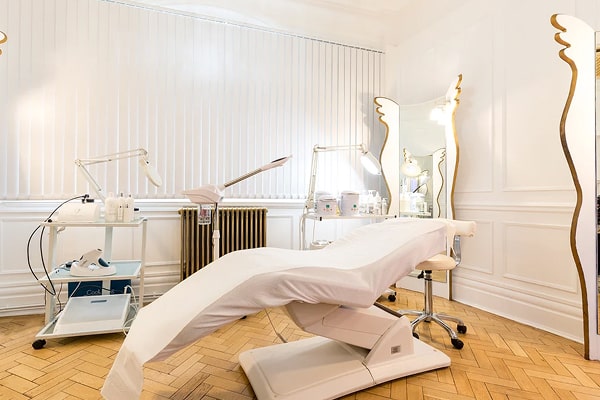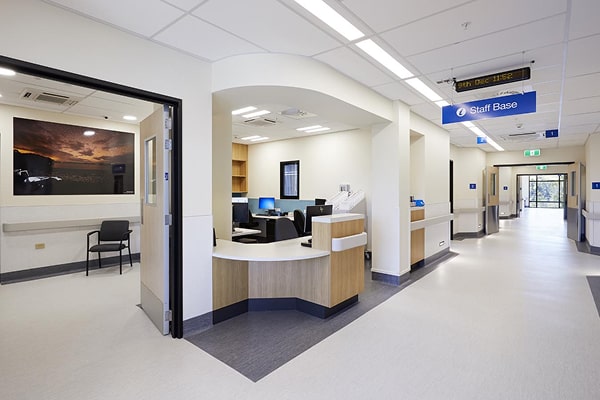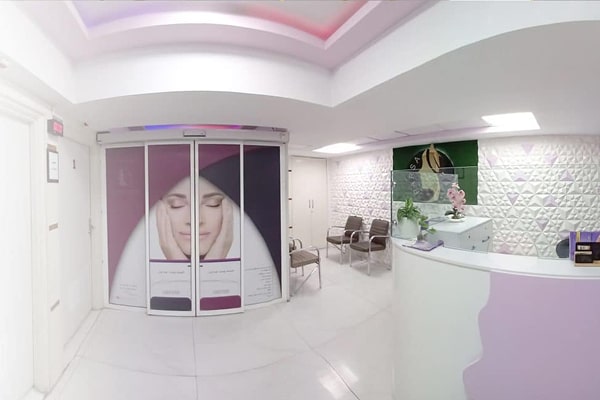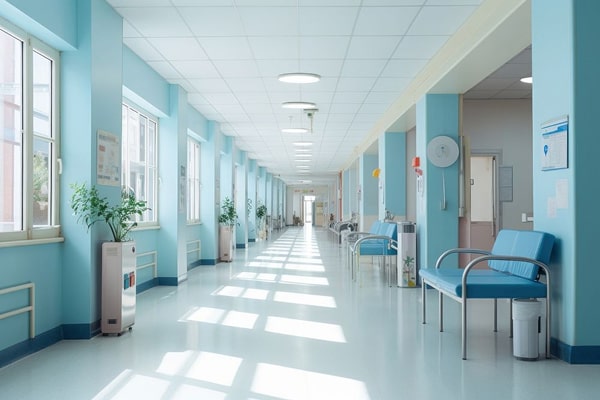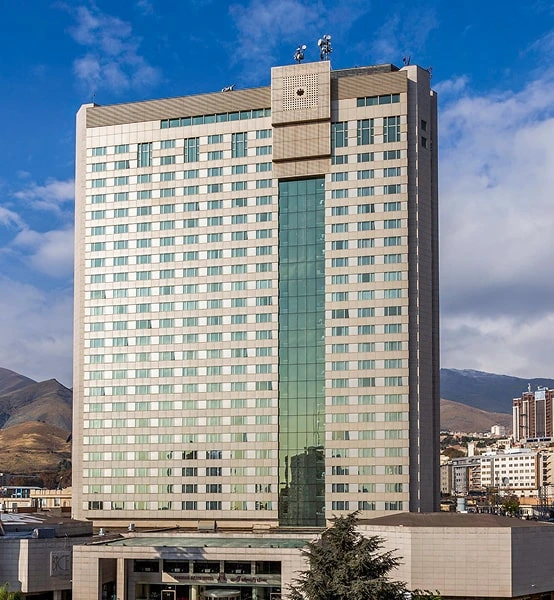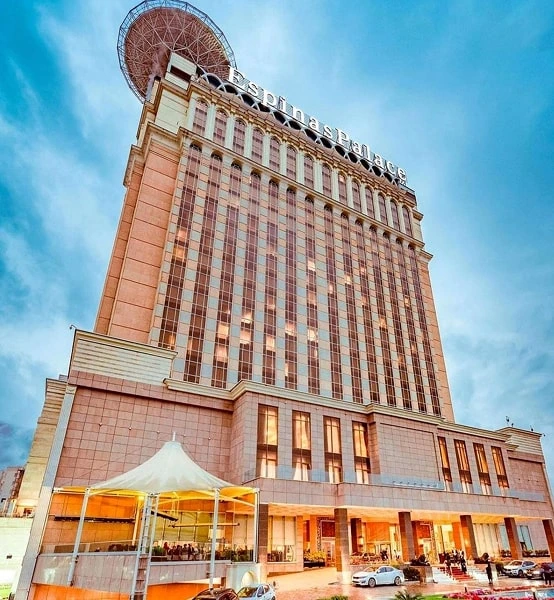Rhinoplasty (Nasal Surgery) and Nasal Reconstruction: A Comprehensive and Specialized Guide
Rhinoplasty, one of the most popular and specialized cosmetic surgeries in the medical world, involves altering the shape and correcting the function of the nose. This surgery is performed to enhance the appearance of the nose or to address breathing and functional issues. In addition to aesthetic rhinoplasty, nasal reconstruction surgery is essential for individuals who need to reconstruct the structure of their nose due to various reasons, such as accidents or other injuries. This article provides a detailed overview of both types of surgery, addressing common questions from patients considering these procedures.
Types of Rhinoplasty (Nasal Surgery)
Rhinoplasty is divided into two main types:
- Aesthetic Rhinoplasty: This type of surgery is performed to change the appearance of the nose to improve facial harmony. Individuals may choose aesthetic rhinoplasty to correct issues such as nose size or shape.
- Functional Rhinoplasty: This surgery is intended to correct breathing problems and reconstruct the nasal structure. People who suffer from issues such as nasal septum deviation, nasal polyps, or other functional problems may require functional rhinoplasty.
Rhinoplasty Surgery Steps
- Initial Consultation: The first step in any surgical process is a consultation with a specialized surgeon. In this phase, the surgeon evaluates all aspects of the surgery, including the patient’s goals, the type of surgery, and expectations for the final result. Through detailed scans and imaging, the surgeon determines which areas of the nose need modification.
- Anesthesia: General anesthesia or local anesthesia combined with sedatives is typically used during rhinoplasty. Depending on the type of surgery and the patient’s condition, anesthesia is administered by an anesthesiologist.
- Surgical Procedure: Rhinoplasty usually lasts between 1.5 to 3 hours. During the procedure, the surgeon uses various methods to modify the nasal structure. Two common approaches are:
- Open Rhinoplasty: An incision is made in the area beneath the nose, allowing the surgeon direct access to the nasal structure. This method is suitable for more complex surgeries and extensive corrections.
- Closed Rhinoplasty: Incisions are made inside the nose, with no external cuts. This approach is used for simpler surgeries.
- Recovery Period: The recovery time after rhinoplasty varies depending on the type of surgery and the individual’s characteristics. Typically, the patient can be discharged from the hospital after a few days, but full recovery may require several weeks of rest and care for the nose. Swelling and bruising after the surgery usually subside within two weeks.
- Follow-Up and Return to Daily Activities: After surgery, the patient should be regularly monitored by the doctor to prevent complications and ensure the recovery process is progressing correctly. The patient should also avoid heavy activities and impacts to the nose until full recovery is achieved.
Nasal Reconstruction Surgery
Nasal reconstruction is performed for individuals who require structural correction of their nose due to illness, accidents, or other injuries. This surgery can include the repair of bones, cartilage, and soft tissues in the nose. The goal of nasal reconstruction is to restore both the natural appearance and proper function of the nose.
Reasons for Nasal Reconstruction Surgery
- Injuries and Accidents: Individuals who have sustained nasal injuries due to car accidents or sports-related incidents may require nasal reconstruction to restore its structure.
- Nasal Cancer: Some cancers can affect parts of the nose, leading to the need for nasal reconstruction after cancer treatment (surgery or radiation therapy).
- Congenital Disorders: Some individuals suffer from congenital deformities in the nose that may require reconstruction to correct.
- Chronic Breathing Problems: People with chronic breathing issues, such as a deviated septum or other structural nasal problems, may opt for nasal reconstruction to resolve these issues.
Benefits of Rhinoplasty and Nasal Reconstruction Surgery
- Improved Appearance and Increased Confidence: Rhinoplasty can provide a more proportionate and natural appearance for the face, boosting the patient’s confidence.
- Relief from Breathing Problems: Functional rhinoplasty can improve breathing and overall health for individuals suffering from respiratory issues.
- Restoration of Damage: Nasal reconstruction surgery can help restore the natural structure of the nose after injury, illness, or breathing issues, improving the patient’s quality of life.
Cost of Rhinoplasty in Iran
One of the reasons Iran is a popular destination for rhinoplasty is its affordable costs. Iran offers high-quality rhinoplasty surgeries at much lower prices than many Western countries, making it one of the primary destinations for medical tourism.
Why Iran is an Ideal Destination for Rhinoplasty
- Specialized and Experienced Surgeons: Iran is known for its distinguished rhinoplasty and nasal reconstruction surgeons. Many Iranian surgeons are internationally trained and have numerous successful procedures.
- Advanced Equipment and Modern Technologies: Rhinoplasty hospitals and clinics in Iran use the latest medical technologies and equipment, which increase precision and improve surgical outcomes.
- Lower Costs and High Quality: Iran offers affordable prices with high-quality treatments, making it one of the best destinations for cosmetic surgeries.
- Support for International Patients: Many hospitals and clinics in Iran provide medical tourism services, including online consultations, visa reservations, airport transfers, accommodation in nearby hotels, and coordination with doctors.
Conclusion
Rhinoplasty and nasal reconstruction surgery are specialized and popular procedures in the field of cosmetic surgery. These surgeries not only help improve appearance and facial harmony but can also correct breathing and structural issues of the nose. Due to its expert surgeons, advanced equipment, and affordable costs, Iran is considered an ideal destination for rhinoplasty. If you are considering rhinoplasty or nasal reconstruction, consulting with a specialized surgeon and choosing a reputable center in Iran can be an effective step towards achieving the desired results.
The Role of Nutrition in Rhinoplasty and Nasal Reconstruction Surgery
Healthy and proper nutrition is one of the key factors in the recovery process after rhinoplasty and nasal reconstruction surgery. The body requires energy and nutrients after any surgery to heal faster and more effectively. This section will explore the impact of nutrition on the recovery process after nasal surgery, dietary tips before and after surgery, and the nutrients needed for optimal healing.
The Role of Nutrition in the Healing Process
- Boosting the Immune System: Nasal surgery can put stress on the body, leading to swelling, inflammation, and tissue damage. Therefore, strengthening the immune system with appropriate nutrients, including vitamins and minerals, can help speed up recovery and prevent infections. Vitamin C, zinc, and vitamin A are important nutrients for boosting the immune system.
- Reducing Inflammation and Swelling: Swelling and inflammation after rhinoplasty are natural. However, certain foods can help reduce inflammation and swelling. Particularly, foods rich in antioxidants, such as various berries (strawberries, blueberries, cranberries), green vegetables (spinach, kale, broccoli), and omega-3-rich plant oils (such as olive oil and fatty fish) can aid in reducing inflammation and accelerating the healing process.
- Supporting Tissue Repair: Consuming proteins is crucial for repairing damaged tissues and promoting faster wound healing. Proteins are essential components of the body’s structure and are necessary for cell and tissue regeneration. Good protein sources include white meat, fish, eggs, dairy products, and legumes, which all help support the healing process.
- Supporting Blood Production: After surgery, the body needs more blood to supply oxygen and nutrients to the damaged tissues. Iron is an important mineral for the production of red blood cells, which are essential for faster recovery. Foods rich in iron include lean red meat, chicken, fish, beans, lentils, and green vegetables like spinach.
- Preventing Constipation: After surgery, some individuals may face digestive issues and constipation due to reduced mobility and pain medication. Consuming fiber, found in fruits, vegetables, whole grains, and legumes, can improve digestion and help prevent constipation.
- Proper Hydration: Hydration is a crucial factor in post-surgery recovery. Water plays a significant role in reducing swelling, eliminating toxins from the body, and improving blood circulation. Therefore, patients are advised to drink plenty of water and avoid caffeinated and alcoholic beverages, which can lead to dehydration.
Nutrition Before Nasal Surgery
Nutrition before surgery also greatly affects the outcome of the surgery and the recovery process. At this stage, paying attention to certain dietary tips can help prepare the body for surgery and enhance the results:
- Avoiding Inflammatory Foods: It is advisable to avoid foods that cause inflammation, such as processed foods, fast food, and fried foods, a few days before surgery. These foods can increase the risk of infection and slow down the recovery process.
- Consuming Vitamin C-Rich Foods: Vitamin C plays a vital role in wound healing and strengthening the immune system. Before surgery, consuming foods such as citrus fruits (oranges, lemons), bell peppers, and kiwis can help enhance the recovery process.
- Reducing Salt Intake: Excessive salt can cause water retention and increase swelling after surgery. It is recommended to reduce the intake of salty foods before surgery to minimize swelling and inflammation post-operation.
- Consuming Protein Sources: Eating protein before surgery helps the body recover from the damage caused by the procedure. Therefore, include protein-rich foods such as white meat, fish, eggs, and nuts in your diet.
Nutrition After Nasal Surgery
After rhinoplasty, proper nutrition can help reduce swelling, accelerate recovery, and minimize post-operative complications. The following recommendations are suggested for the post-surgery phase:
- Consuming Soft and Liquid Foods: Due to swelling and sensitivity in the surgical area, it is recommended that patients consume soft and liquid foods in the first weeks following surgery. Soups, purees, and smoothies are easy to eat and digest.
- Antioxidant-Rich Nutrition: To help reduce inflammation and speed up healing, antioxidant-rich foods should be consumed. Berries, dark green vegetables, and olive oil are excellent sources of antioxidants.
- Avoiding Allergy-Inducing Foods: Certain foods may cause allergic reactions or further inflammation in the body. During this time, it is advisable to avoid fatty dairy products, spicy foods, and known allergens.
- Maintaining Protein and Vitamin Levels: Just as protein and vitamins were important before surgery, continuing to consume them after surgery is crucial. Consuming protein sources, vitamin C, and vitamin A will help in tissue regeneration and faster nasal healing.
Conclusion
Nutrition plays a very important role in achieving a quick and effective recovery after rhinoplasty and nasal reconstruction surgery. From boosting the immune system to reducing swelling and inflammation, specific nutrients can help accelerate the healing process. Therefore, paying attention to a balanced diet, rich in proteins, vitamins, and minerals, as well as maintaining proper hydration, is crucial in achieving optimal results from nasal surgery.
Skin Care and the Impact of Temperature on Rhinoplasty and Nasal Reconstruction Surgery
Rhinoplasty and nasal reconstruction surgery is a precise and complex process that requires special care during the recovery period. One of the most important aspects of this care is the attention to the health of the nasal skin and maintaining it under different environmental conditions. Temperature and weather conditions can have a significant impact on the healing process of the skin after surgery. This article examines the post-surgery skin care requirements and how to cope with different temperature conditions to promote faster healing and maintain long-term results.
Post-Surgery Skin Care for Rhinoplasty
After rhinoplasty, the nasal skin is sensitive and in the process of healing. Adhering to care guidelines during this period can help accelerate recovery and prevent skin issues. Here are some of the most important skin care tips after nasal surgery:
- Keeping the Skin Moisturized: One of the most crucial post-surgery skin care tips is to keep the skin moisturized. Using fragrance-free, oil-free moisturizers suitable for sensitive skin helps prevent dryness and cracking. Excessive skin dryness can lead to itching, irritation, and even the formation of wounds that can hinder the healing process.
- Using Sunscreen: The skin of the nose is very sensitive after surgery and is at risk of damage from direct sunlight exposure. Using sunscreen with a high SPF (at least 30) is essential to protect the skin from harmful UV rays. Sun exposure can cause dark spots on the skin and even increase swelling and inflammation.
- Avoiding Touching and Excessive Pressure: After nasal surgery, avoid touching or applying excessive pressure to your nose until your doctor gives approval. Pressure on the skin can cause shifting or reshaping of the nose or damage to the healing tissues. This can even result in inflammation and infection.
- Keeping the Skin Clean: Keeping the nasal skin clean is very important. It is recommended to use mild, non-soap cleansers to wash and clean the nasal skin. This helps prevent contamination and infection, accelerating the healing process. Additionally, avoid using cosmetic and skincare products that can irritate the skin.
- Using Cold Compresses: In the first days following surgery, swelling and bruising may occur around the nose. Using cold compresses can help reduce swelling and bruising. Cold compresses should not be placed directly on the skin; it is better to use a thin cloth between the compress and the skin to prevent further damage.
Care in Different Temperature Conditions
Temperature and weather conditions can have a significant impact on the healing process of the skin and the structure of the nose. The body needs appropriate environmental conditions for recovery after surgery. In this section, we examine the necessary care required under different temperature conditions:
- Care in Cold Temperatures (Winter and Cold Climates)
Cold and dry air can be damaging to the skin of the nose and slow down the healing process. In temperatures below 10°C, the skin typically becomes dry and cracks, which can lead to issues such as irritation and inflammation around the nasal area.
- Using Rich Moisturizers: In these conditions, using rich moisturizers with nourishing ingredients like Vitamin E and Aloe Vera is very helpful in maintaining skin moisture. Natural plant oils, such as coconut oil or olive oil, can also be used to keep the skin soft and hydrated.
- Wearing Protective Masks: In extremely cold areas, it is recommended to wear soft masks or protective coverings to prevent direct exposure to cold air on the nasal skin. This helps avoid dryness, cracking, and further sensitivity.
- Using Humidifiers: In enclosed spaces such as homes or hotel rooms in cold regions, using humidifiers can help increase humidity and prevent skin dryness.
- Care in Hot Temperatures (Summer and Warm Climates)
In hot and humid weather, the body sweats more, which can lead to skin irritation and other skin issues. Additionally, direct sun exposure can cause severe damage to the nasal skin, leading to inflammation and dark spots.
- Protecting the Skin from the Sun: Using sunscreens with SPF higher than 30 is very important to prevent damage from direct sun exposure. This not only helps protect the skin but also prevents pigmentation and dark spots from forming on the nose.
- Avoiding Intense Physical Activities in Heat: After surgery, it is advisable to avoid heavy physical activities in hot and humid conditions. Excessive sweating can irritate the nasal skin and increase swelling. Instead, light and short activities in cooler environments are recommended.
- Drinking Plenty of Water: High temperatures can lead to dehydration. To prevent dehydration and maintain skin hydration, drinking plenty of water is crucial. This helps accelerate recovery and reduce inflammation.
- Care in Temperature Fluctuations (Moderate Regions)
In regions with fluctuating weather conditions, where temperatures frequently shift between cold and warm, the nasal skin is more exposed to potential damage.
- Intermittent Care: In these conditions, it is essential to intermittently use moisturizers and sunscreens. This will help protect the skin in both cold and warm temperature conditions.
- Using Cold and Warm Compresses: In areas with fluctuating temperatures, it may be necessary to use cold compresses to reduce swelling and warm compresses to soothe pain and improve blood circulation.
Conclusion
Post-surgery skin care for rhinoplasty and nasal reconstruction is of great importance. Along with general care practices like keeping the skin moisturized, using sunscreen, and avoiding pressure on the nose, different temperature conditions can significantly impact the healing process and skin health. Special care in both cold and hot temperatures, including the use of moisturizers and sunscreens, avoiding intense activities in the heat, and maintaining hygiene in both conditions, can help accelerate the healing process and improve the results of nasal surgery.








